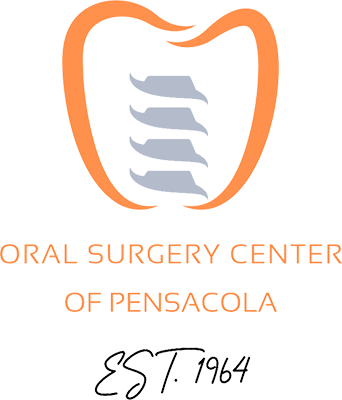4850 North 9th Ave #4, Pensacola, FL 32503

Dental Implants
for Ferry Pass, Brent, Pensacola, FL & Beyond
Dental implants are an advanced solution for replacing missing teeth, offering a durable and natural-looking solution. These implants consist of tiny titanium posts which are surgically inserted into the jawbone where teeth are missing. These metal anchors act as tooth root substitutes. Over time, the jawbone naturally bonds with the titanium surface through a process known as osseointegration. This bond forms a robust and stable foundation, much like that of natural tooth roots. Once the implants have integrated with the bone, small posts, or abutments, are attached to each implant. These posts extend through the gums and provide the attachment points for replacement teeth, such as crowns, bridges, or dentures.
Dental implants not only restore functionality but also preserve facial structure and improve oral health, making them an excellent tooth replacement option. At the Oral Surgery Center of Pensacola, we will walk you through the dental implant process and help you decide if it is the best treatment option for you and your mouth. Contact our office today to get started. We welcome patients across Brent, Ensley, Ferry Pass, and Pensacola, FL.
The Surgical Procedure
For most patients, the placement of dental implants involves two surgical procedures. First, implants are placed within your jawbone. For the first four to six months following surgery, the implants are beneath the surface of the gums, gradually bonding with the jawbone. You should be able to wear temporary dentures and eat a soft diet during this time. At the same time, your dentist is forming new replacement teeth.
After the implant has osseointegrated, or bonded to the jawbone, the second phase begins. Dr. Greskovich, Dr. Dean, and Dr. Day will uncover the implants and attach small posts, which will act as anchors for the artificial teeth. These posts protrude through the gums. When the artificial teeth are placed, these posts will not be seen. The entire procedure usually takes six to eight months. Most patients experience minimal disruption to their daily lives.
Our Hours
Monday - Thursday 8-4:30 | Friday 8-2:30
Saturday and Sunday Closed
Contact Us
We will get back to you as soon as possible.
Please try again later.
